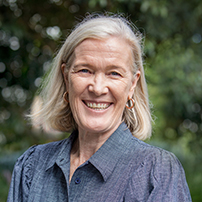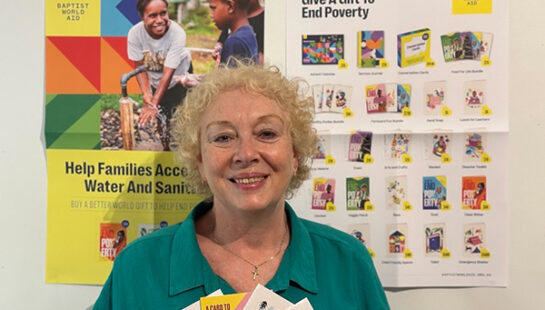‘What’ Instead Of ‘Why’
We didn’t see a pandemic coming. The idea seemed implausible a few years ago.
So much has changed since and how much more we know now.
Alongside our growing knowledge, something else has grown too – questions like, why? Will there be another? How long?
Crises throughout the ages have raised such questions and answers have rarely satisfied.
Tom Wright’s book ‘God and the Pandemic’ says not to question ‘why’ but ‘what’ – ‘what can we do?’ Similarly, Paul’s letter to the Galatians tells Christians to ‘do good to all people’— and the outside world couldn’t believe it!
Ever since, Christians have visited prisoners, cared for the wounded, welcomed the strangers, and fed the hungry. They’ve started hospitals, initiated palliative care, created social aid agencies, provided housing and schools.
What Does It Mean To Do Good In Today’s World?
These are crucial reminders to us as we recognise World Day of Social Justice, on 20 February. But they also raise another question for us: what does it mean to do good in today’s world?
These are crucial reminders to us as we recognise World Day of Social Justice, on 20 February. But they also raise another question for us: what does it mean to do good in today’s world?
Pandemic aside, there has always been injustice and poverty in our world. Does it follow that there always will be? No. Instead, the challenge for the church and for followers of Jesus is understanding what the God of love and justice expects of us.
One of the marks of the Christian life is serving – a life Jesus modelled. The day before his ultimate act of service, Jesus and the disciples celebrated Passover and during the meal Jesus washed his disciples’ feet—dirty, dusty, smelly feet. They protested but Jesus insisted. He wanted to leave them with a clear picture of not just who he was, but who he wanted them to be as his followers.
Jesus’ call then (and now) is to serve others, to live a life of compassion and care and sacrifice.
The Full Gospel Message
I’ve been a Christian my entire adult life since a Navy chaplain opened the pages of the Bible to me and showed me that I wasn’t who I thought I was. I was who God said I was. It changed my life. I knew that if I accepted him, Jesus would forgive my sins, take away my guilt and shame and be my friend forever. And Jesus would hold me safely when I die. It was gloriously about Jesus and me.
It started off self-focused, but I’ve since learnt it’s much bigger than that. It’s a story of global restoration we’re privileged to be part of. It’s the full gospel!
In fact, Richard Stearns, a past president of World Vision International, said the ‘Jesus and me’ version of the gospel is a gospel with a hole in it:
‘Being a Christian requires much more than just having a personal and transforming relationship with God. It also entails a public and transforming relationship with the world. If your personal faith in Christ has no outward expression, then your faith has a hole in it – an awfully big hole!’
So, when we talk about ‘social justice’, we’re really talking about faith in Jesus that has an outward expression, one that gives and serves and works toward righting wrongs. Even if these deeds are costly, as they were for Jesus.
Whose Responsibility Is It To End Poverty?
Current predictions of the pandemic’s impact suggest 40-60 million more people will be pushed into extreme poverty (living on $1.95USD a day). Twenty-three million of the new ‘extremely poor’ will be in sub-Saharan Africa and 16 million in South Asia, our back yard. Across the world, at least 265 million people are facing acute food insecurity right now, including countries where they’ve never experienced this before.
Ours is the wealthiest generation ever and Australia is one of the wealthiest countries in the world. We are bright, educated and experienced. We can travel the world in under 24 hours and send a message in a millisecond. We have medicines at our fingertips and ample resources.
We know the world has enough resources to feed the hungry and house all refugees. We now have access to a vaccine booster and the ability to provide that (and the original vaccines) for the entire world.
God has given us everything we need to end poverty and injustice . . . so why don’t we? And whose responsibility is it anyway?
God has given us everything we need to end poverty and injustice . . . so why don’t we? And whose responsibility is it anyway?
What Does The Lord Require Of Us Personally And Corporately?
Jesus didn’t just announce that his kingdom had come. He demonstrated it. He fed the hungry, healed the sick, ministered to the lonely, included the marginalised, and blessed the children. He calls us to do the same.
In John 10:10, Jesus said, ‘I have come that you may have life, and have it to the full’. This gives us the biblical picture of God’s creative and redemptive love for all people regardless of time, place, ethnicity, gender, or circumstance.
And throughout scripture, we see how humans are to deal with each other. With a consistent and special concern for the poor, the widow, the orphan, the marginalised and the powerless, we’re to restore structures and powers in society that deny human potential and the possibility of life in its fullness.
So, what does the Lord require of us personally and corporately? To act justly, to love mercy and to walk humbly with him. Injustice and poverty are our problem!
This World Day of Social Justice, and every other day that the sun still rises, followers of Jesus must accept the call—the privilege and the responsibility— to care for others in Christ’s name. This is the fullness of life God intends.



 Sophia Russell,
Sophia Russell,

 Baptist World Aid
Baptist World Aid